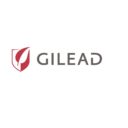This blog is sponsored by Gilead Sciences
On World AIDS Day 2019 there is certainly reason to celebrate. It has been more than three decades since the global HIV/AIDS epidemic emerged, igniting a worldwide response and unifying a strong community to fight against the disease.
Today, prevalence rates across the globe continue to fall as the global community finally has the tools to meaningfully address new HIV infections.
However, despite the progress made to date, this picture is not universal. Eastern Europe and Central Asia (EECA) is one of the few regions in the world where the annual rate of HIV infections continues to rise. [1] Deaths from AIDS-related illnesses have increased 300% in the last 20 years in EECA, and each day, more than 400 people become infected with HIV, and 100 die from AIDS-related illnesses in the region.1
Too often, due to stigma as well as many other factors, communities living with or at risk of HIV are not provided the support they need to live healthy and productive lives. In fact, more than nine in ten new infections in EECA are among key populations, including the LGBTQ+ community, sex workers, people who inject drugs and their sexual partners1 – groups which often face discrimination due to stigma.
Focussed and impactful action tailored to addressing the specific challenges in the EECA region is therefore urgently needed to ensure no one is left behind in the global effort to end the HIV/AIDS epidemic.
It is based on this need that we launched the ground-breaking RADIAN initiative in September 2019. A partnership between the Elton John AIDS Foundation and Gilead Sciences, RADIAN aims to support those affected by and at risk of HIV in EECA. The Elton John AIDS Foundation and Gilead have previously worked together in the region and this partnership leverages our understanding of the EECA community from previous initiatives.
RADIAN is comprised of two key elements, the RADIAN “Model Cities” fund and the RADIAN “Unmet Need” fund. The Model Cities programme will invest in targeted interventions by local organisations in key EECA cities. It will supplement government efforts to complement and strengthen local initiatives. The programme will support innovative approaches, including new models of care and expanded prevention and healthcare programmes, led by groups who are on-the-ground and part of the community. The RADIAN Unmet Need fund will support local initiatives across the region and beyond the selected RADIAN Model Cities.
Through a multi-pronged effort, RADIAN can direct resources to communities in need that are immediately ready to scale interventions through targeted funding, while simultaneously building capacity in others.
Globally, efforts are underway to reach the target of ending the HIV/AIDS epidemic by 2030. While some regions are already achieving UNAIDS benchmarks or showing considerable progress,1 it is important that people living in regions such as EECA are not left behind. We need to reduce the inequalities we see between EECA and other regions if we are to achieve zero new HIV infections and deaths from AIDS-related illnesses by 2030 worldwide. To address the unique challenges remaining in the EECA region a holistic approach is needed, and RADIAN seeks to support the region in the fight against HIV/AIDS.
Best practices and learnings from the local implementation of RADIAN over the next five years will be used as a blueprint towards helping create change across the region. By working together, we can create change to ensure no one is left behind in the effort to end the HIV/AIDs epidemic and we welcome others to join the RADIAN partnership as it progresses.
Find out more at http://www.radianhiv.org
Alex Kalomparis is VP Public Affairs, Australia, Canada and Europe at Gilead Sciences
Anne Aslett is Chief Executive Officer of the Elton John AIDS Foundation
Disclaimer
This article is written and sponsored by Gilead. All opinions in this article reflect the views of the author and not Alliance magazine.
Job bag: IHQ-HIV-2019-11-0018
Date of Preparation: November 2019









Comments (0)